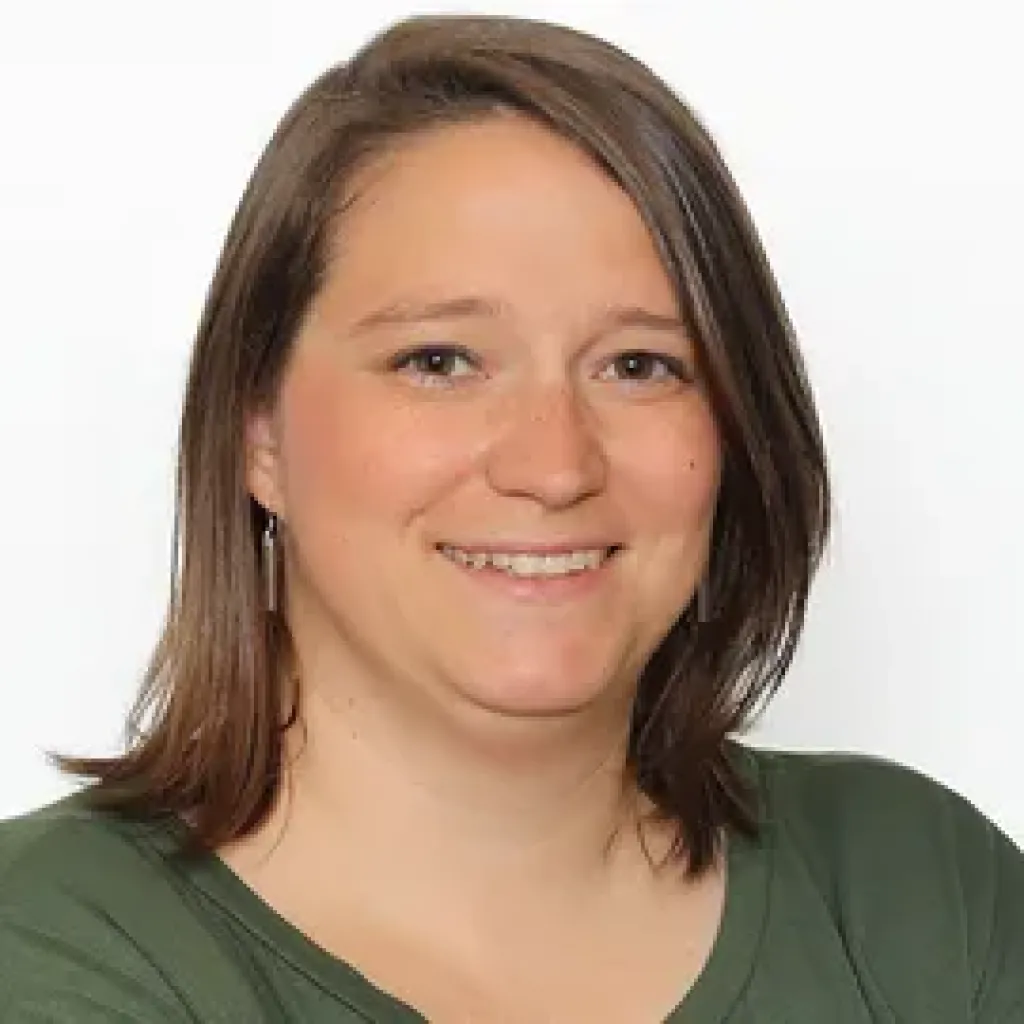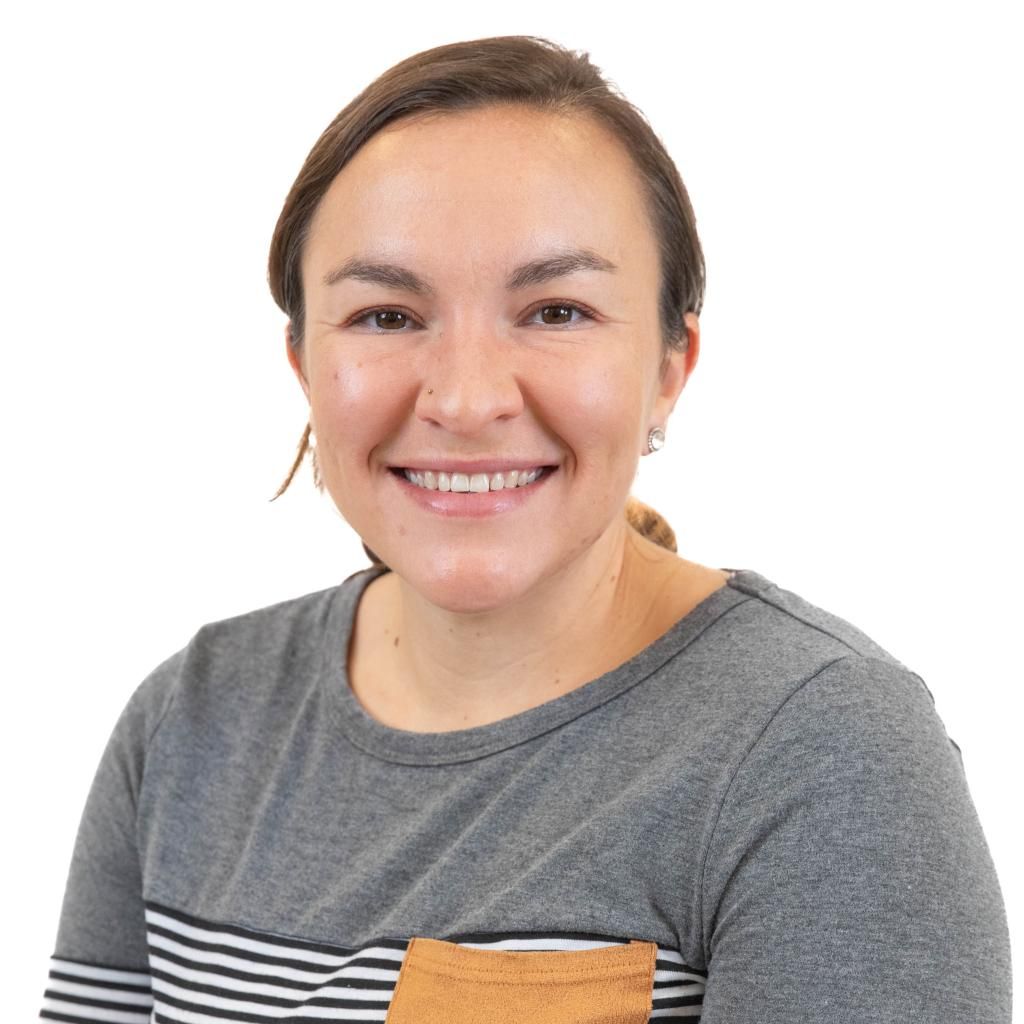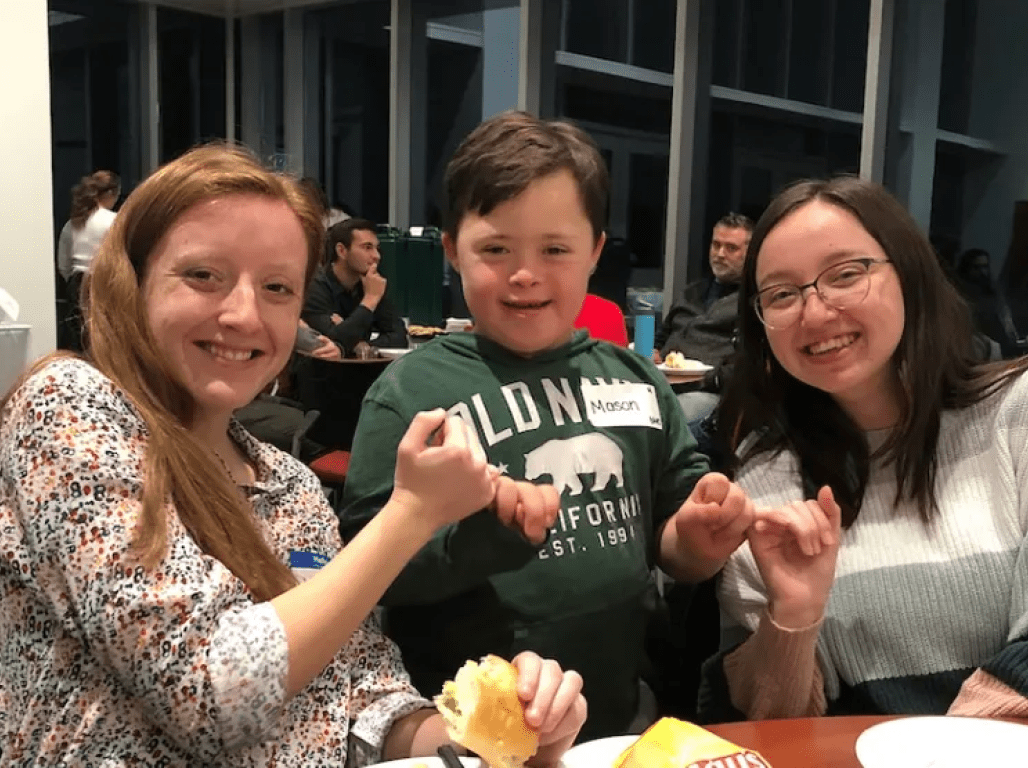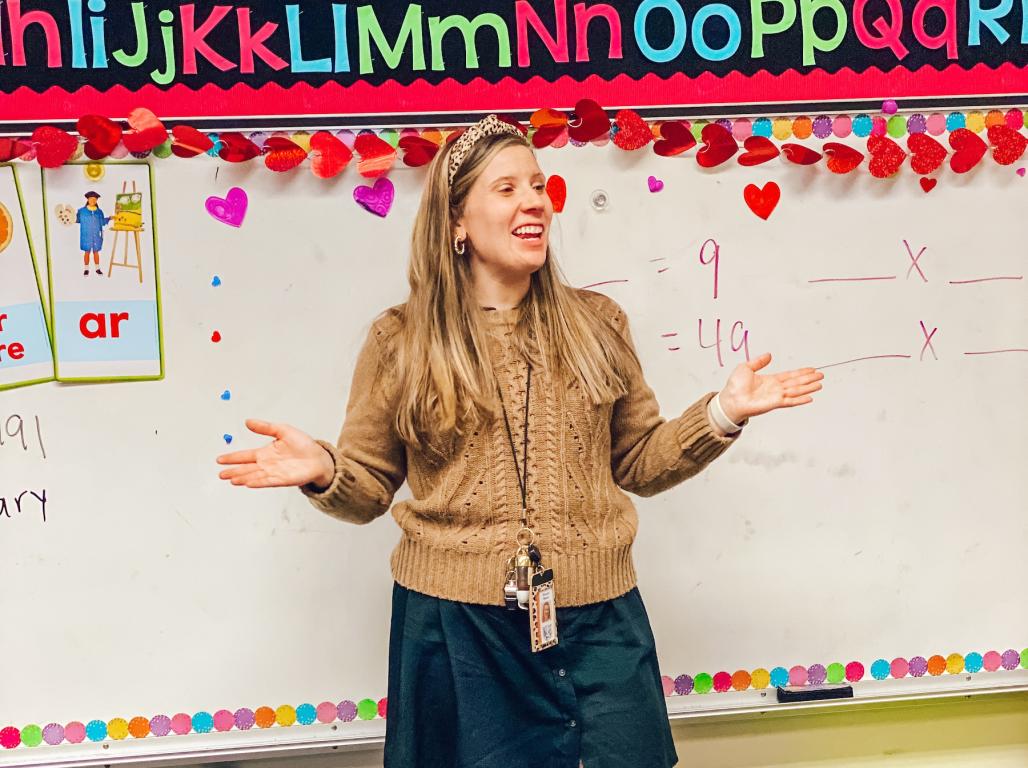Early Elementary Special Education

Program Type
B.S.
Est. Time to Complete
4 Years
School
School of the Arts, Humanities, Education, and Social Sciences
Delivery Mode
On Campus

Become a special education teacher and help young students flourish.
Students in elementary schools have a wide range of needs. With a Bachelor of Science (B.S.) in Early Elementary Education and Special Education from York College of Pennsylvania, you develop the knowledge and skills to help all children excel.
Our dual program allows you to double major in Early Elementary Education and Special Education. This unique opportunity offers direct training with students so you can apply your expertise and grow an appreciation for the differences your future students may bring to the classroom.
Ready to deepen your understanding of these two complementary areas of education and become a Pennsylvania special education or elementary school teacher? Learn more about how the program can support your goals and competitively position you for career success.
About the Bachelor of Science in Early Elementary Education and Special Education
Early Elementary and Special Ed Degree Courses
The Bachelor of Science in Elementary Education and Special Education degree program covers a range of topics, including teaching English language learners, evidence-based instruction, positive behavior support, and assistive and augmentative technology. You take a holistic blend of courses focused both on early elementary and special education.
Pre-professional and professional Education classes allow you to develop a deeper understanding of theory and then apply it in classroom contexts. You learn to appreciate learner differences and nuture students experiencing various educational challenges.
Early Elementary and Special Education Minors
Enhance your training by pursuing a dual early elementary education and special education degree and a complementary minor. Options may include:
Admissions and Aid
Applying to college is a big step, and we’re here for each part of the process. Our comprehensive admissions resources can help you prepare for what’s next, whether it's gathering application materials or clicking “Apply.” To get started, review our undergraduate admissions information.
Our financial aid tools can also help you make informed decisions about how to fund your Elementary Education and Special Education degree. Explore options like scholarships, loans, work-study, and more by visiting the financial aid page.
Earn a B.S. in Early Elementary and Special Education at York College of Pennsylvania
Prepare to make a lasting impact on young learners, including those with diverse needs, in our Bachelor of Science in Early Elementary Education and Special Education degree program. Gain experience working directly in the classroom and graduate equipped to support students with a range of abilities.
Career Preparation
York College's Early Elementary and Special Education graduates possess many qualifications and specializations that enable them to teach in public schools or provide other education services. The training they receive during student teaching prepares them for the challenges of working in education and equips them with the tools to overcome them.
Our graduates have gone on to lead careers in public and private schools across the region, including Baltimore County Public Schools, Dallastown Area School District, Lincoln Intermediate Unit 12, York City School District, and York Suburban School District.
The Career Development Center is also a great resource for students enrolled in the Early Elementary and Special Education program. They can help with interview preparation, résumé writing, and more.
Want to advance your career? Consider earning a Master of Education (M.Ed.) degree.
Elementary and Special Education Teacher Salary
According to the Bureau of Labor Statistics (BLS), Pennsylvania's special education teachers earn substantially more than the national median. While the national median wage for special education teachers was $64,910 in 2023, their counterparts in Pennsylvania earned $74,360 annually. This pattern holds true for elementary school teachers as well—Pennsylvania elementary teachers earn $73,100, compared to the national median of $63,680. These figures place Pennsylvania's education salaries higher than many other states across the country.
Benefits of an Early Elementary and Special Education Degree
Early elementary special education is a promising career path with significant growth potential. As a teacher, you will have a meaningful profession that directly impacts the lives of students, their families, and your community. Working in a school district also provides built-in opportunities to continue enhancing your skills and advancing in your profession.
Student Teaching and Clinical Fieldwork
York College’s Early Elementary and Special Education bachelor’s degree program focuses on in-classroom learning experiences. We aim to provide you with practical training with a diverse range of students. You also have many opportunities to interact with working educators and learn from their expertise.
Near the beginning of your studies, the early field experience course allows you to observe and receive mentorship from educators in local Pennsylvania schools. Then, in your final semester, you complete a full-time clinical field experience. During this time, we place you in an area school district in two separate classrooms (regular education and special education) within your certification areas.
This direct professional practice ensures that you graduate well-prepared for your first classroom with a competitive skill set for the job market.
Learn From Expert Educators
Dedicated York College faculty are experienced educators who share their vast knowledge in early elementary special education and support your journey to becoming an education professional. Their support and close attention in the classroom are crucial in shaping your approach to early elementary special education and your readiness to make a difference.
Placements With Local Schools
York College of Pennsylvania is ingrained in the education community, from public and charter schools to specialized institutions and advocacy organizations.
For students in the B.S. in Early Elementary Special Education program, this means unparalleled access to student teaching opportunities and professional development resources right from the start. These connections form a solid foundation for launching your career and ensuring you're prepared to make a significant impact in the lives of students with special needs, supported by a network that values innovation and dedication in education.
Clubs and Professional Organizations
On-campus student organizations offer a variety of opportunities for education majors who want to get involved. Many Early Elementary Special Education students take part in the Student Education Association (SEA) and/or the Kappa Delta Pi Education Honor Society.
Twice per semester, the Education Department also hosts children and families from the York Area Down Syndrome Association (YADSA) on campus. Students from several education classes get hands-on experience as they engage the children in learning activities and spend time getting to know these young members of our community.
Skill Outcomes of the Elementary Education and Special Education Dual Degree Program
York College graduates become competent and empathetic educators in schools across the state. They are highly qualified teachers who can:
- Assess student skills and educational needs
- Develop and implement Individualized Education Programs (IEPs)
- Plan activities that are specific to unique abilities
- Adapt lesson plans to meet special needs
- Teach a class, in small groups, and one-on-one
- Discuss students’ progress with parents and others
- Help children with special needs thrive outside the classroom
An Accredited Early Elementary and Special Education Program
York College is fully accredited by the Middle States Commission on Higher Education, which accredits schools and colleges in the Middle States region. This includes Delaware, DC, Maryland, New Jersey, New York, and Pennsylvania. Accreditation by one of the six regional accrediting associations in the United States indicates that the school or college has been carefully evaluated and found to meet standards agreed upon by qualified educators.
The College's Bachelor of Science (B.S.) program in Early Elementary and Special Education is accredited by the Pennsylvania Department of Education.
Early Elementary/Special Education Courses
Your class schedule includes core courses for your Early Elementary and Special Education major and Gen Next general classes. These courses work together to round out your college experience and prepare you for your career.
| Course Name | Course Code | Credits |
|---|---|---|
| Early Childhood Theory and Practice | ECH 230 | 3 Credits |
| Transitions and Career Development in Special Education | SPE 351 | 3 Credits |
| Positive Behavior Support | SPE 375 | 3 Credits |
| Student Teaching | SPE 495 | 10 Credits |
Careers in Early Elementary/Special Education
A bachelor’s degree in Early Elementary and Special Education opens up a variety of professional opportunities in schools and community settings. Some of your options may include:
Special Education Teacher
Elementary School Teacher
Preschool Teacher
Behavioral Specialist
Special Education Advisor
Transition Coach
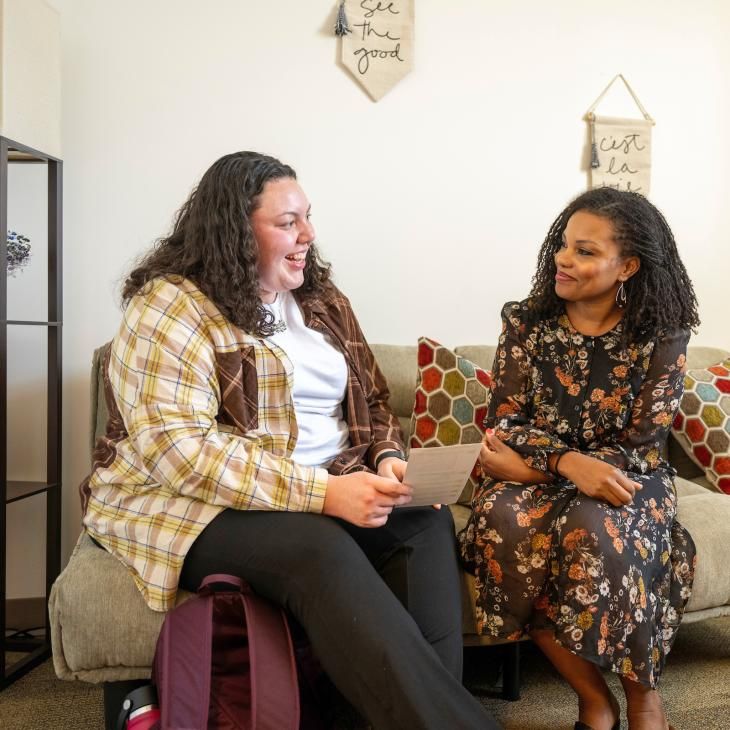
Build your dream career, one day at a time.
This is day one. From your first semester on campus through graduation day, York College offers expert advice, professional development opportunities, and personalized support to help you navigate the choices that influence your future.
Explore resources for a successful college experience:
Meet the Faculty
View All FacultyEarly Elementary/Special Education in Action
View All NewsRelated Programs
Early Elementary Education
Early elementary teachers shape the future. Our bachelor of science in Early Elementary Education (pre-K through grade 4) prepares you to do just that, guided by professors who teach the way you want to teach: with knowledge and compassion.
Middle Level Education
The Bachelor of Science (BS) degree program in Middle Level Education at York College of Pennsylvania utilizes field experience and immersive instruction to instill the knowledge and skills you need to succeed in a middle school education career. As a Middle Level Education major at York College, you graduate professionally certified to teach grades 4-8 and have the opportunity to specialize in a core subject.
Middle Level Education/Special Education
In this dual major, you’ll learn classroom management and all the best practices of shaping preadolescent minds, as well as gain knowledge and skills about students with special needs and English Language Learners. This degree prepares students for professional teacher certification in both middle level education (grades 4-8) and special education (PreK-grade 8).


